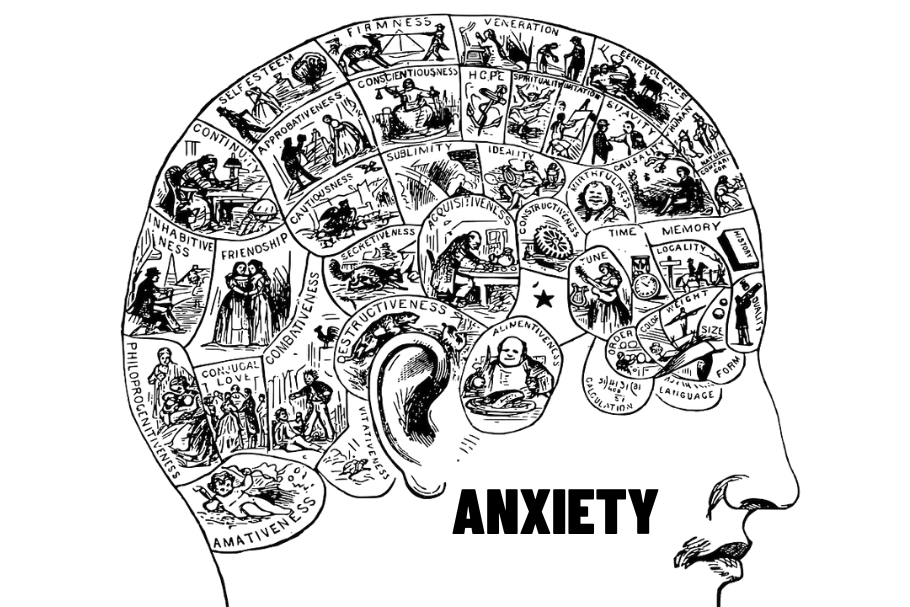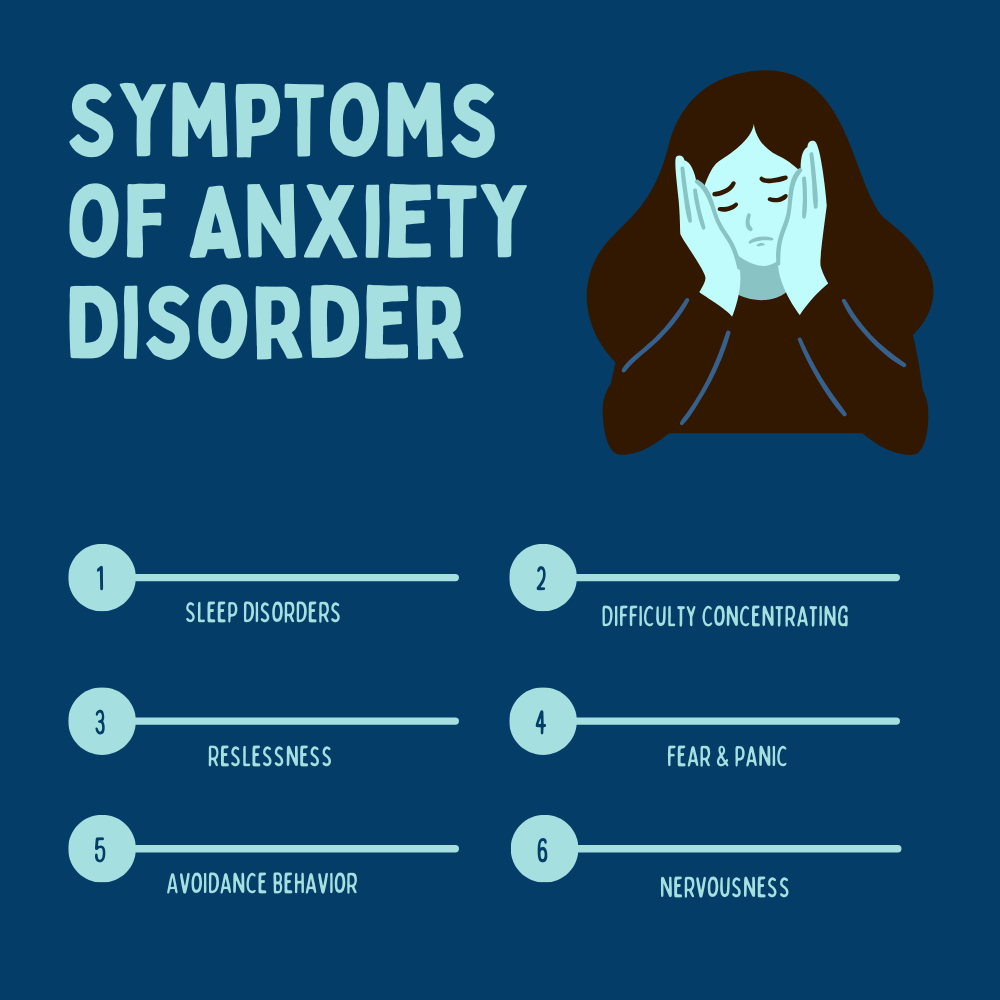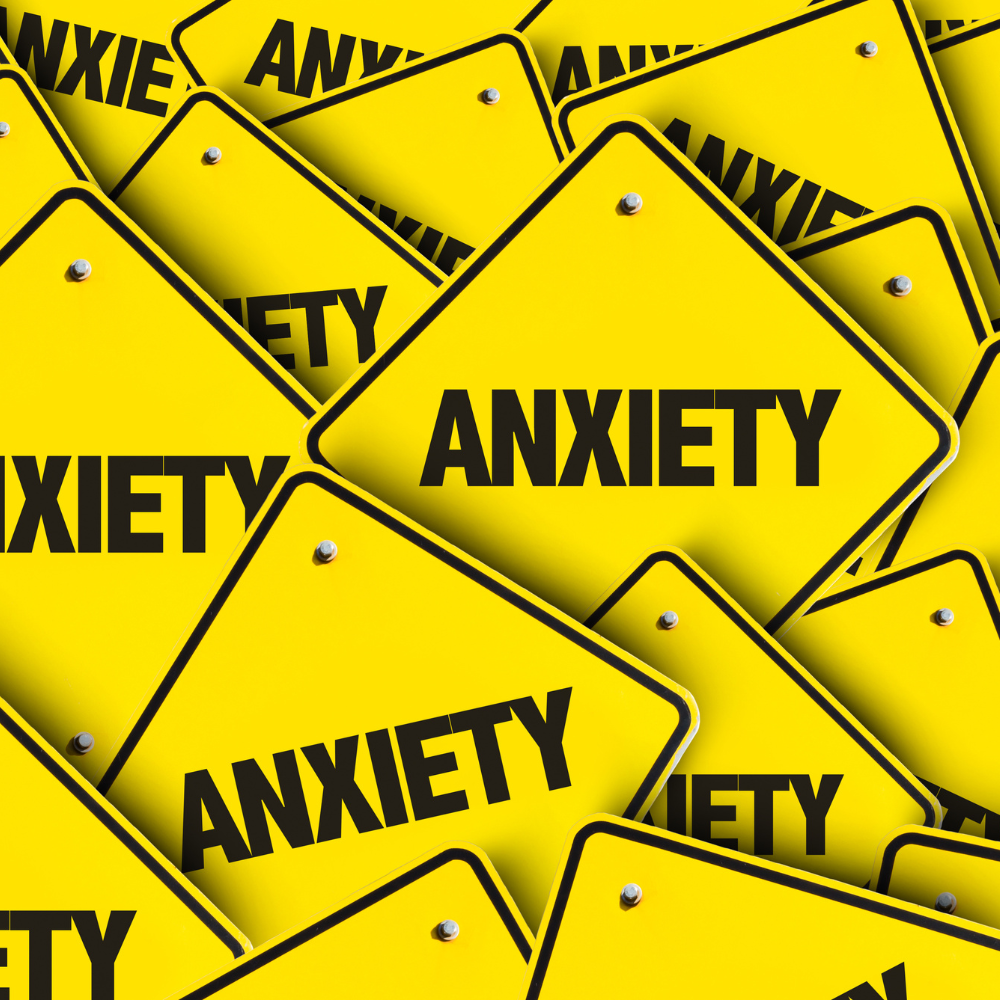Anxiety Symptoms, Causes, and 12 Effective Treatments

Anxiety Symptoms, Causes, and 12 Effective Treatments
Introduction
Anxiety is a current internal health condition, affecting a significant portion of the population. It can manifest in various ways, impacting an existent’s emotional well- being and overall quality of life.
In this blog post, we will embark on a trip to unravel anxiety, exploring its symptoms, understanding its root causes, and discovering a dozen proven treatments that can empower individualities to manage and palliate their worry symptoms.

Anxiety Symptoms
- Anxiety doesn’t wear a out; it takes on different forms in different individualities. Being suitable to fete these symptoms is the first step towards managing fear. also are some common unease symptoms devilish Worrying One of the hallmark symptoms of worry is the case, devilish solicitude about various aspects of life, including work, connections, or health. This solicitude may be fallacious and delicate to control, causing significant torture.
- Restlessness and irritability constantly leads to restlessness and a constant sense of apprehension. individualities may witness irritability, agitation, and difficulty relaxing or staying still.
- Physical Symptoms can manifest physically, with symptoms analogous as a rapid- re- re eyeblink, briefness of breath, casket stinginess, sweating, pulsing, and dizziness. These physical sensations can be distressing and constantly act symptoms of other medical conditions.
- Sleep Disturbances multitudinous individualities with fear struggle with sleep disturbances. This can include difficulty falling asleep, staying asleep, or passing restless and unsatisfying sleep. Consequently, individualities may feel fatigued and have difficulty concentrating during the day.
- Difficulty Concentrating Anxiety can vitiate an existent’s capability to concentrate and concentrate on tasks. This may lead to dropped productivity, obliviousness, and difficulties making opinions.
- Avoidance behavior People with panic may engage in avoidance behavior to reduce fear- driving situations or places. This avoidance can limit particular and professional openings and may hinder an existent’s capability to overcome it.
Types of Anxiety Conditions

Anxiety isn’t a one- size- to- all condition; it comes in various forms. also are some common types of conditions:
- Generalized Anxiety complaint( GAD) This type of nervousness is characterized by devilish, patient solicitude about everyday life, constantly accompanied by physical symptoms.
- Fear complaint People with fear complaint experience sudden, violent bouts of fear or fear, constantly accompanied by heart beatings, briefness of breath, and a sense of brewing down.
- Social Anxiety complaint is the fear of judgment and scrutiny in social situations, leading to avoidance of social gatherings and relations.
- Specific Phobias This involves an fallacious fear of specific objects or situations, analogous as heights, spiders, or obsessive- compulsive complaint( OCD) OCD is marked by case, intrusive studies ( prepossessions) and repetitive conduct( forces) performed to reduce it well.
- Post-Traumatic Stress complaint( PTSD) constantly a result of a traumatic event, PTSD can lead to ashbacks, agonies, and severe suffering.
Probing the Roots
Understanding what powers fear is the first step toward effective treatment. it can be bedded in a variety of causes, including:
- Natural Factors Genetics and family history can play a part in the development of panic conditions. Certain individualities may have apartiality to worry due to inherited traits that affect their brain chemistry and response to stress.
- Environmental Factors exploits analogous as trauma, abuse, or significant life events can contribute to the development of High situations of stress, a chaotic terrain, or exposure to violence can also be contributing factors.
- Brain Chemistry Imbalances An imbalance of neurotransmitters, analogous as serotonin, dopamine, and gamma- aminobutyric acid( GABA), can impact mood regulation and increase the trouble of conditions.
Co-Occurring Conditions
It can constantly attend with other internal health conditions, making opinion and treatment more complex. Conditions like depression, substance abuse, and eating conditions may intertwine with worry, taking a holistic approach to address all aspects of an existent’s internal well- being.
Treatment Beyond the Basics
- Effective treatment for uneasiness goes beyond remedy and medicine. also are some advanced strategies to consider
- Neurofeedback This fashion involves monitoring brainwave exertion and furnishing feedback to individualities to help them gain control over their brain function, potentially reducing it.
- Virtual Reality Exposure remedy Virtual reality technology allows individualities to defy their fear triggers in a controlled, safe terrain, making it an innovative approach to treatment.
- Transcranial glamorous Stimulation( TMS) TMS is anon- invasive procedure that uses glamorous fields to stimulate vagrancy- whams cells in the brain, showing pledge in treating worry and depression.
- Ketamine remedy Ketamine, traditionally an anesthetic, has shown implicit in swiftly easing symptoms of severe depression and fear.
- Yoga and mindfulness- predicated Stress Reduction( MBSR) These practices promote relaxation and tone- awareness, helping individualities manage concerns more effectively.
Effective Approaches to Cope Anxiety

Managing fears is not a one- size- to- all shot. also are a dozen effective treatments to help you regain control and peace.
-
Cognitive- Behavioral remedy( CBT)
CBT is an established remedial approach that helps individualities identify and modify negative study patterns and conduct, furnishing practical managing strategies.
-
Medicine
Tradition specics, analogous as picky serotonin reuptake impediments( SSRIs) and benzodiazepines, can give relief from severe worry symptoms by balancing brain chemistry.
-
Relaxation ways
rehearsing relaxation ways, analogous as deep breathing exercises, contemplation, or progressive muscle relaxation, can help reduce panic situations and promote a sense of calm.
-
Regular Exercise
Engaging in regular physical exertion releases endorphins, natural mood enhancers that help palliate stress.
-
Stress Operation
knowledge effective stress operation ways, analogous as time operation, setting boundaries, and prioritizing tone- care, can help individualities more manage with fear triggers.
-
life Changes
Making healthy life changes, analogous as getting enough sleep, maintaining a balanced diet, limiting caffeine and alcohol input, and avoiding substance abuse, can have a positive impact on anxiety operation.
-
Support Network
Building a strong support network of family, buddies, or support groups can give emotional support and understanding, helping individualities navigate their anxiety trip.
-
Mindfulness and Contemplation
rehearsing mindfulness and contemplation ways can help individualities cultivate present- moment awareness, reduce solicitude, and promote overall well- being.
-
Herbal Remedies
Certain herbal remedies, analogous as chamomile, lavender, and valerian root, have calming parcels and may round anxiety treatment. still, it’s essential to consult with a healthcare professional before using herbal remedies.
-
Breathing Exercises
administering deep breathing exercises, analogous as diaphragmatic breathing or box breathing, can help individualities regulate their breathing patterns and induce a state of relaxation.
-
Journaling
Keeping a journal to express studies, passions, and enterprises can serve as a remedial outlet and help individualities gain perceptivity into their solicitude triggers.
-
Seeking Professional Help
When anxiety symptoms persist or significantly intrude with quotidian functioning, seeking professional help from internal health professionals, analogous as psychologists or psychiatrists, is vital. They can give a comprehensive evaluation, opinion, and recommend applicable treatment options.
Support Networks
Having a strong support network can significantly meliorate the trip of those dealing with anxiety. Family, buddies, or support groups can give emotional support, understanding, and a sense of community. Connecting with others who are passing similar challenges can be both reassuring and empowering.
The part of Technology
In moment’s digital age, technology can be a double- sharpened brand when it comes to anxiety. On one hand, it can give access to helpful resources, remedy apps, and online support groups. On the other hand, devilish screen time, social media, and the constant in of information can complicate anxiety. It’s vital to nd a healthy balance when using technology to manage anxiety.
Breaking the stigma
Anxiety, like multitudinous internal health conditions, has faced its fair share of stigma over the times. It’s essential to break down these walls and encourage open exchanges about internal health. By adding awareness, we can produce a more compassionate and humane society where seeking help for anxiety is not seen as a weakness but as a visionary step toward well- being.
The Ongoing Journey to Recover.
Managing anxiety is not a one- time task; it’s an ongoing trip. Just as physical health requires conservation, so does internal health. individualities living with anxiety may have periods of relative calm followed by challenging times. This decline and is a natural part of the trip.
The important thing is to ash back that you are not alone. multitudinous people, from all walks of life, experience anxiety, and there is a vast array of resources and strategies available to help you navigate this trip successfully.
The path to recovery from anxiety is unique for each existent. It’s a trip of tone- discovery, rigidity, and particular growth. While anxiety may no way to completely evaporate, it can be managed and indeed used as a catalyst for particular transformation.
In Conclusion
Anxiety is a multifaceted condition that affects millions of individualities. It’s essential to recognize the symptoms, understand the underpinning causes, and explore the vast array of treatment options available. Whether through traditional antidotes, advanced interventions, or tone- care practices, individualities can nd the right combination of strategies to reclaim their lives and experience bettered internal well- being.
Anxiety is a complex condition with a multitude of symptoms that can significantly impact an existent’s well- being. Understanding the symptoms, relating the underpinning causes, and exploring a range of treatment options can help individualities effectively manage and palliate their anxiety.
It’s essential to ash back that everyone’s experience with anxiety is unique, and chancing the right combination of treatments may take time. By seeking professional help, espousing healthy managing strategies, and incorporating life changes, individualities can regain control of their lives and experience bettered overall internal well- being. Anxiety is a complex condition with various angles and challenges.
By employing managing strategies, seeking support, and breaking down stigma, individualities can lead fulfilling lives, indeed in the presence of anxiety. The path to managing anxiety is unique for each person, but with the right tools and a supportive community, it’s a path filled with expedient, rigidity, and particular growth.
Click here to read “Smile School of Budapest – A Unique Approach to Fighting Depression in 1937″
For More Related Articles Browse Our Website Blogster.pk
For social Connection You can also Visit and follow our Social media Platforms
Facebook , Instagram, Linkedin, Pinterest, Quora, Twitter, Youtube.








